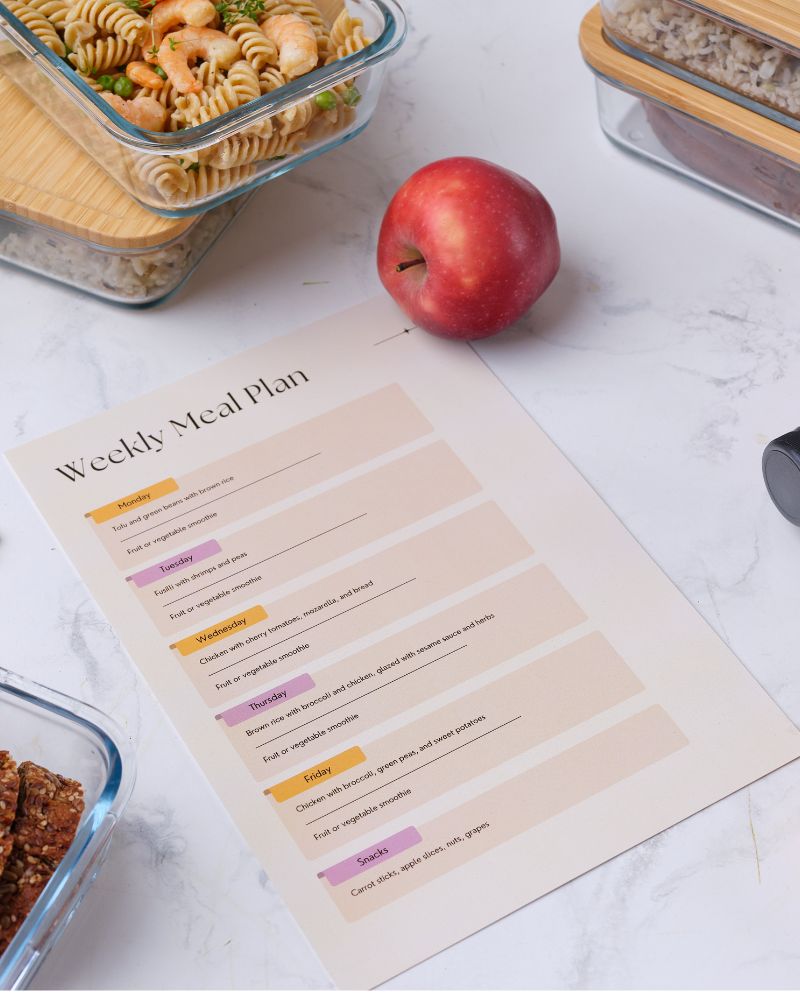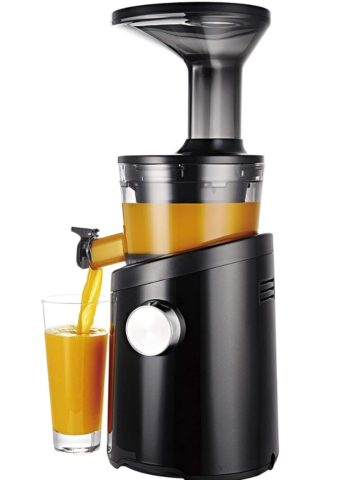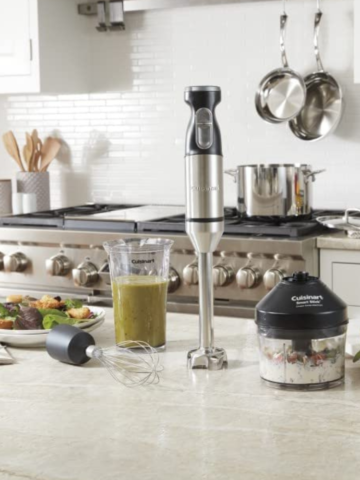As a busy parent, I know firsthand how challenging it can be to make healthy meals for my family, especially these days when a lot of our foods are processed and ready to eat. Once upon a time we often found ourselves resorting to fast food or frozen dinners because we didn't have the time or energy to plan and prepare meals ahead of time. But as I started to learn more about the benefits of meal planning for a healthy kitchen, I decided to give it a try.
At first, it was a bit overwhelming, but with some trial and error, I figured out what worked best for us. I started by setting realistic goals, like planning meals for 3-4 days at a time. I also began to choose recipes that were easy to prepare and included a variety of healthy foods. I actually found planning for 1 week was just too much, but a few days, I could totally handle that.
Over time, meal planning became a regular part of our routine, and it has made a huge difference in our overall health and well-being - and my kids started eating LESS snacks. We're now eating more nutritious foods, saving money by eating out less, and enjoying more quality time together as a family.
In this blog post, I'll be sharing some tips and tricks for creating a meal plan that's both realistic and effective. Whether you're new to meal planning or looking to take your planning skills to the next level, these tips will help you build a healthy kitchen and keep your family happy and nourished. So, let's dive in and get started!

Tips for Creating a Meal Plan
Here are some tips for creating a meal plan for a healthy kitchen:
Start small: If you're new to meal planning, start with a plan for just a few days at a time. This will help you ease into the process without feeling overwhelmed.
Choose recipes wisely: Look for recipes that are easy to prepare and include a variety of healthy ingredients. Consider your family's dietary needs and preferences when selecting recipes.
Make a grocery list: Once you've planned your meals, make a list of the ingredients you'll need for each recipe. This will help you stay organized and ensure that you have everything you need when it's time to cook.
Prep ahead of time: Take advantage of downtime during the week to prep ingredients for upcoming meals. Chop vegetables, cook rice, or marinate meat ahead of time to make meal prep a breeze.
Mix it up: Don't be afraid to try new recipes or mix up your meal plan from week to week. This will keep things interesting and prevent boredom with your meals.
Use leftovers: Plan to make extra food so that you can have leftovers for lunch or dinner the next day. This can save time and money and ensure that you have a healthy meal ready to go.
Stay flexible: Life happens, and sometimes plans change. Be flexible with your meal plan and don't be afraid to make adjustments as needed.
By following these tips, you can create a meal plan that works for you and your family's needs, and helps you achieve your health goals. Happy planning!
Tricks for Sticking to the Plan
Here are some tricks for sticking to your meal plan and achieving your healthy kitchen goals:
- Meal prep on the weekends: Take advantage of the weekends to prep your meals for the upcoming week. This will help you stay on track and reduce stress during the week.
- Use a calendar or planner: Write down your meal plan for the week in a planner or calendar. Seeing your plan visually can help you stay on track and avoid deviating from your plan.
- Have healthy snacks on hand: Stock your pantry and fridge with healthy snacks like fruits, vegetables, and nuts. This will help you avoid unhealthy snacking and stay on track with your meal plan.
- Get the family involved: Enlist the help of your family in meal planning and preparation. This can help you stay accountable and create a sense of teamwork and togetherness in the kitchen.
- Make it enjoyable: Find ways to make meal planning and preparation enjoyable. Play some music, involve your kids in cooking, or try new recipes to keep things interesting and fun.
- Plan for eating out: If you know you'll be eating out, research the restaurant's menu ahead of time and choose a healthy option. This will help you stay on track with your healthy eating goals.
- Don't be too hard on yourself: If you slip up and don't stick to your meal plan, don't beat yourself up. Just get back on track and keep moving forward towards your goals.
By incorporating these tricks into your routine, you can stay on track with your meal plan and create a healthy kitchen that supports your overall health and well-being.
Building a Healthy Kitchen
Here are some tips for building a healthy kitchen, even if you're like super busy.
Stock up on healthy staples: Fill your pantry and fridge with healthy staples like fruits, vegetables, whole grains, lean proteins, and healthy fats.
Invest in quality cookware: Invest in quality cookware like non-stick pans, sharp knives, and sturdy cutting boards. This will make meal prep easier and more enjoyable.
Choose healthy cooking methods: Opt for healthy cooking methods like grilling, roasting, steaming, and baking instead of frying or sautéing in oil.
Organize your kitchen: Keep your kitchen organized and clean to make meal prep and cooking easier. Store frequently used items in easy-to-reach places and label your food containers for easy identification.
Reduce food waste: Plan meals carefully to reduce food waste. Use leftovers for future meals and freeze any excess food to use at a later time.
Grow your own herbs: Growing your own herbs is an easy and cost-effective way to add flavor to your meals. Plus, fresh herbs are packed with health benefits.
Limit processed foods: Limit your intake of processed foods like chips, soda, and packaged snacks. Opt for whole foods instead, which are more nutritious and satisfying.
By following these tips, you can create a healthy kitchen that supports your overall health and well-being. With a little planning and preparation, you can enjoy delicious, nutritious meals that nourish your body and keep you feeling your best.





Comments
No Comments